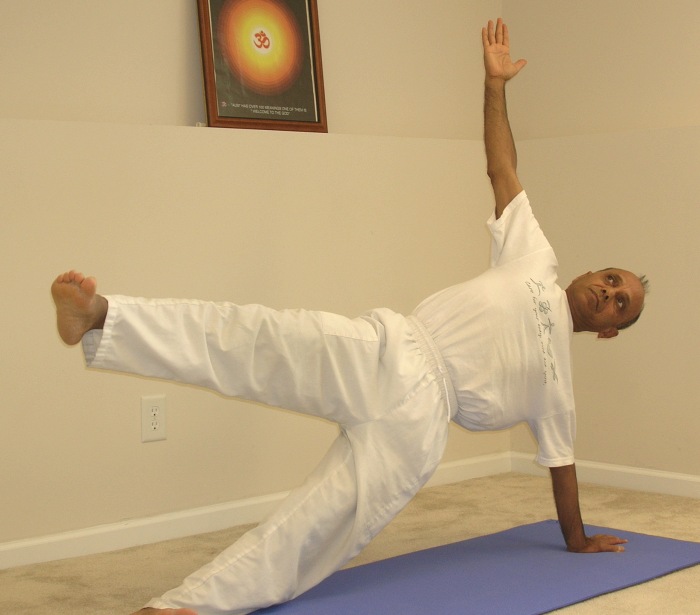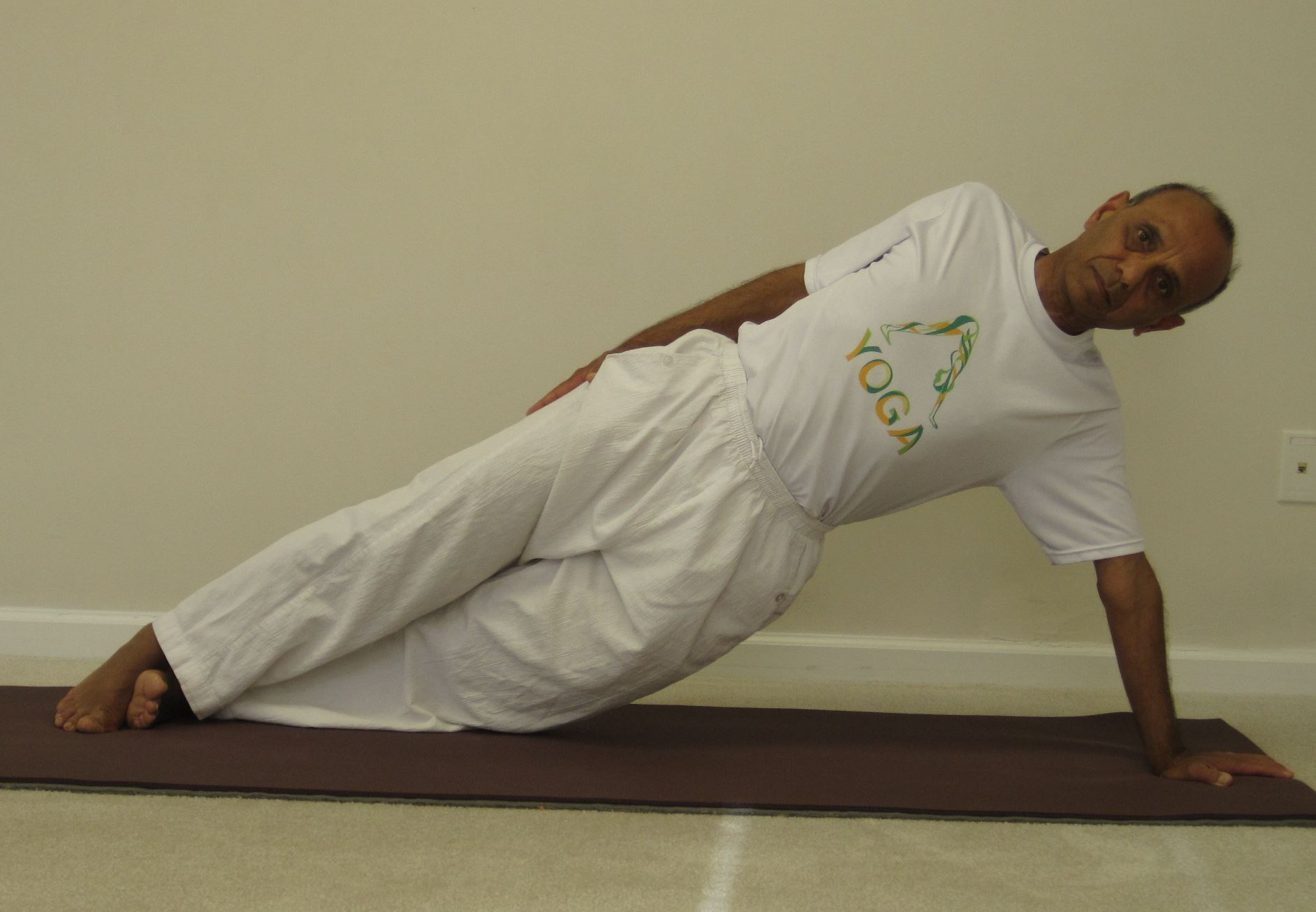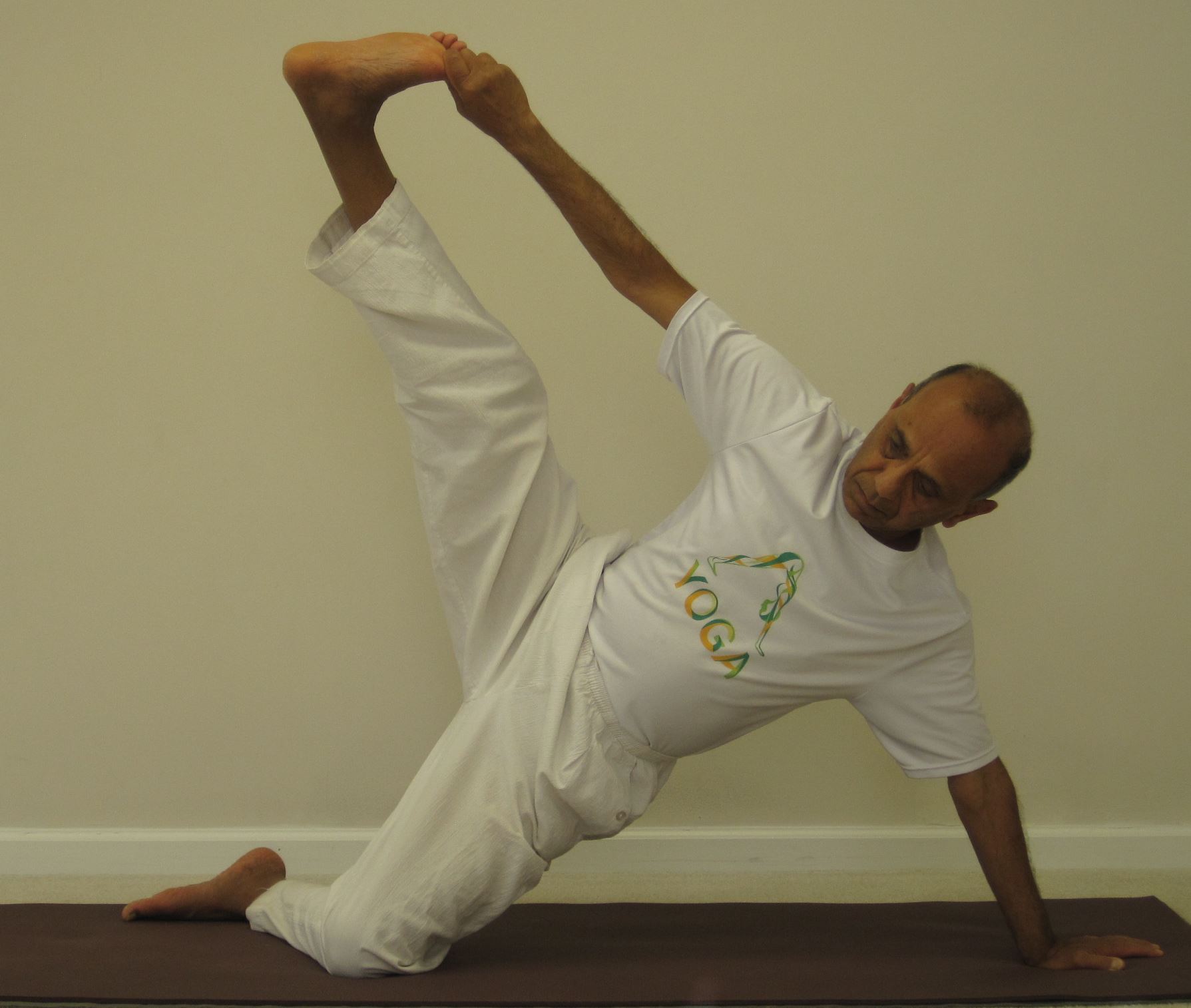
Vasishthasana
Vasishthasana (वसिष्ठासन)
The name of the pose is derived from the name of an ancient sage, Vasishtha, from the Vedic times. Here is a brief background on the meaning and other particulars associated with the sage, extracted from the Monier Williams Sanskrit dictionary:
"Literally the word Vasishtha means the most excellent, best, richest. Vasishtha (वसिष्ठ) " the most wealthy", was the name of a celebrated Vedic sage (owner of the " cow of plenty ", called Nandini, which by granting all desires made him, as his name implies, master of every desirable object; he was the typical representative of Brahmanical rank , and the legends of his conflict with Sage Vishwamitra , who raised himself from the kingly to the Brahmanical class, were probably founded on the actual struggles which took place between the Brahmans and Kshatriyas; a great many hymns of the Rigveda are ascribed to these two great rivals; he is enumerated among the ten Prajapatis or Patriarchs produced for the peopling of the universe; in the epic Mahabharat he is mentioned as the family priest of the solar race or family of Ramachandra and the husband of Arundhati; other legends make him one of the 7 patriarchal sages regarded as forming the Great Bear in which he represents the star."
I haven’t been able to find out why the pose has been named after Sage Vasishtha. If you know why or point me to some resource material, I’d be grateful.

Vasishthasana – straight legs
Step-by-step
Variation 1
- Start out in the Downward Facing Dog (Adhomukha-shvanasana) or Dandasana (Plank Pose).
- Shift the left hand to the center of the mat and turn the body sideways. In this position, the outside edge of the left foot is against the floor and the right foot is resting on the left.
- For better stability, position the left hand slightly in front of the shoulder level, not vertically under the shoulder. Stretch the left arm straight. In this position, the body is in a single vertical plane.
- If you feel comfortable, raise the right arm all the way up and position it in a straight line with the left. If the neck doesn’t bother you, you may want turn the neck to look up at the right hand. Otherwise, keep the head in the neutral position.
- Try to stay in the final position for about 8 to 10 breaths, if comfortable.
- When you come out of the pose, go back to the downward facing dog position for a few breaths.
- Repeat the same steps on the other side.
- Finally rest in the Child Pose (Balasana).

Vasishthasana – knee down
Variation 2
- Get into the position as described in the variation 1 above.
- If you can, raise the right leg up and try to bring it to a horizontal position.
- If keeping the bottom leg straight seems too challenging, bring the left knee down to the floor and then try to raise the leg up to a horizontal position.
- Try to stay in the final position for about 8 to 10 breaths, if comfortable.
- When you come out of the pose, go back to the downward facing dog position for a few breaths.
- Repeat the above steps on the other side.
- Finally rest in the Child Pose (Balasana).

Vasishthasana – holding ankle
Variation 3
- Repeat steps 1 through 3 from variation 1 above.
- Bring the left knee down to the floor and with the right hand hold the big toe of the right foot.
- Make an effort to pull the leg up to a vertical position while continuing to hold on to the big toe.
- In the final position, the effort is to keep the entire body in a single vertical plane.
- Try to stay in the final position for about 8 to 10 breaths, if comfortable.
- When you come out of the pose, go back to the downward facing dog position for a few breaths.
- Repeat the same steps on the other side.
- Finally rest in the Child Pose (Balasana).
Benefits
- Strengthens the arms, core, and legs
- Strengthens the back muscles
- Provides a good stretch for the hips, groin area, hamstrings and the inner thigh
- Stretches and strengthens the wrists
- Stretches the backs of the legs
- Improves sense of balance
Contraindications and Cautions
Students with wrist, elbow, or shoulder injuries should avoid this pose.
thank you so much for your beautiful web site
AlFONSO
from Canada….
home town British Colombia canada
Thanks, Alfonso, for your kind feedback.